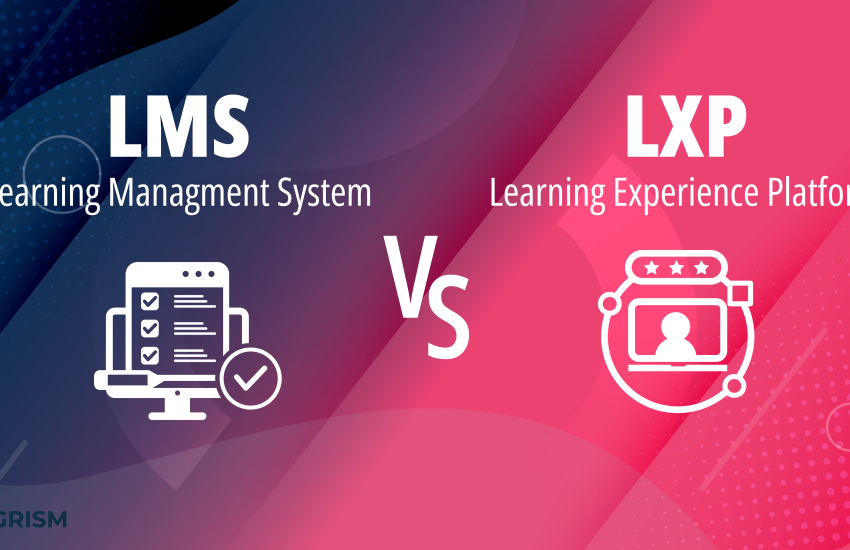The world of work is constantly evolving, demanding a skilled and adaptable workforce. More than ever, organizations need effective strategies for employee upskilling and engagement. Two prominent solutions in the e-learning landscape are Learning Management Systems (LMS) and Learning Experience Platforms (LXPs). But what’s the difference, and which one is right for you? This blog post will explore the strengths and weaknesses of both LMS and LXP to help you make an informed decision.
LMS
A Learning Management System (LMS) is a software platform designed to deliver, manage, and track e-learning courses. Think of it as a centralized hub for storing pre-built courses, managing learner enrollment, and delivering assessments. LMS often includes features like reporting tools to monitor progress and completion rates.
LXP
A Learning Experience Platform (LXP), on the other hand, focuses on creating a personalized learning journey for each user. LXPs curate content from various sources, including external resources, allowing learners to explore topics that interest them. They also emphasize social and collaborative features, fostering knowledge sharing and peer-to-peer learning. Some LXPs even allow for user-generated content, further enriching the learning experience.
Head-to-Head Comparison: LMS vs. LXP
Now let’s dive deeper and compare LMS and LXP across different aspects:
- Content Management: LMS excels at managing pre-built courses and content libraries. This is ideal for organizations with standardized training programs.
- LXPs, however, shine in content curation. They allow you to integrate learning materials from various sources, including online articles, videos, and podcasts, providing a more diverse learning experience.
- Learning Experience: LMS offers a structured learning path, often with a linear progression through modules. This approach can be effective for ensuring everyone receives the same foundational knowledge.
- However, LXPs prioritize a more personalized and adaptive learning experience. By considering an individual’s skills and goals, LXPs can recommend relevant content and create a customized learning journey.
- Delivery and Assessment: LMS is well-suited for delivering instructor-led training and standardized assessments. Think of online quizzes and exams.
While LXPs can also offer assessments, they often provide a wider range of learning formats. Microlearning modules, for instance, are popular on LXPs, allowing learners to consume information in bite-sized chunks. Additionally, LXPs often promote self-directed learning with diverse assessment methods that go beyond traditional tests.
- Engagement and User Experience: Let’s face it, LMS can sometimes struggle with user engagement. The structured learning path can feel rigid, and the interface might lack the bells and whistles to keep learners motivated.
LXPs, on the other hand, typically offer a more engaging and interactive user interface. Social features like discussion forums and gamification elements can help boost learner engagement and make the learning experience more enjoyable.
- Tailored Solutions: It’s important to note that both LMS and LXP vendors can offer some level of customization to cater to specific organizational needs.
Grism can help you develop bespoke content or tailor the platform to seamlessly integrate with your existing learning ecosystem.
So, which platform is right for you? Here’s a breakdown:
LMS is a great choice for:
-
- Standardized training programs
- Regulatory compliance requirements
- Centralized content management (think onboarding, preboarding, and mandatory training)
LXP shines in situations where you want to:
-
- Foster a culture of continuous learning
- Personalize skill development for each employee
- Encourage knowledge sharing and collaboration
The Bottom Line
LMS and LXP are both valuable tools for e-learning, but they cater to different needs. The best choice depends on your specific L&D goals and target audience. If you’re unsure which platform is right for you, Grism.co can help. With our expertise in content development and a commitment to tailored solutions, we can help you implement the most effective learning platform to empower your workforce.

